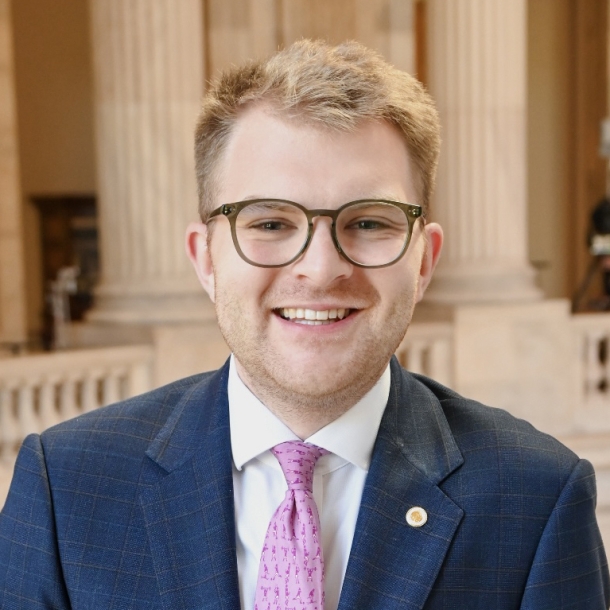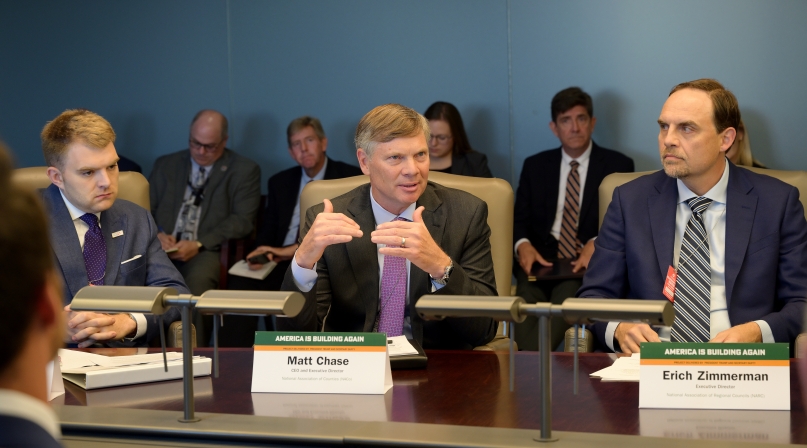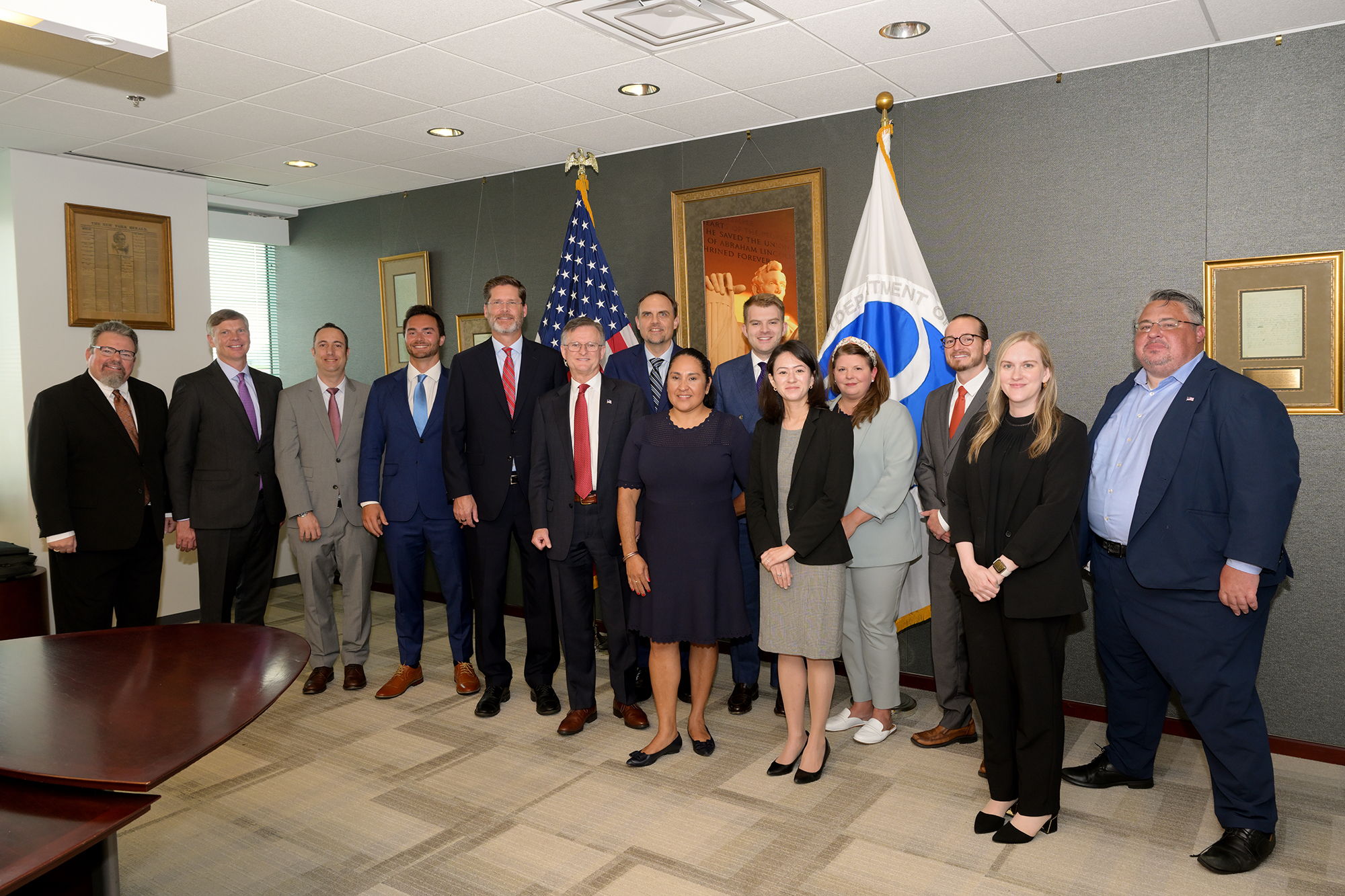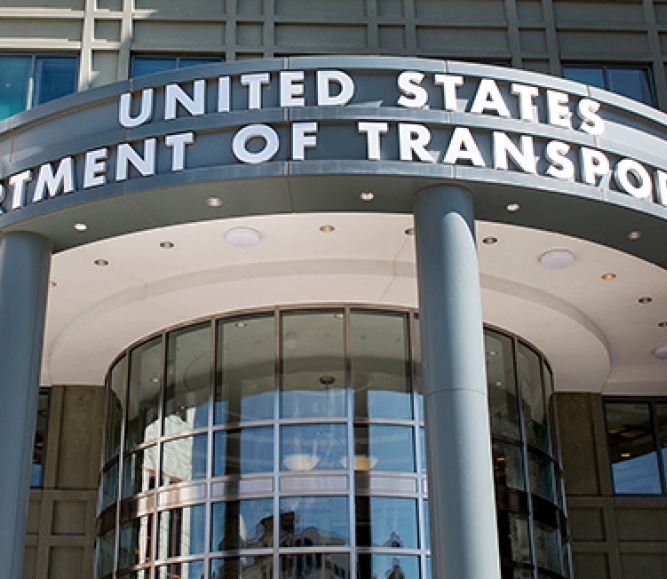Local government leaders meet with USDOT on surface transportation reauthorization
Author

Ben Gilsdorf

Rachel Yeung
Upcoming Events
Related News

Key Takeaways
On August 15, NACo and the National Association of County Engineers (NACE), met with the U.S. Department of Transportation (USDOT) to discuss county transportation and infrastructure priorities. USDOT Deputy Secretary Steven Bradbury and Special Advisor Sean McMaster hosted the discussion, which comes as the agency works to develop its priorities for the surface transportation reauthorization process.
The meeting also included representatives from other organizations in the Local Officials in Transportation (LOT) Coalition, a nonpartisan group made up of local and regional government stakeholders committed to strengthening America’s transportation systems. Members include NACo, the National League of Cities (NLC), U.S. Conference of Mayors (USCM), Association of Metropolitan Planning Organizations (AMPO), National Association of Regional Councils (NARC) and National Association of Development Organizations (NADO).

Local governments own more than 75 percent of the nation’s road miles, nearly half of all bridges, and operate a significant number of public transit systems and airports. Counties alone own 38 percent of bridges and 44 percent of public road miles, including over 40 percent of the mileage on the Federal-aid highway system. Locally owned infrastructure is more likely to be in poor condition than state-owned infrastructure, a trend that is exacerbated by federal underinvestment in locally owned roads and bridges.
During the meeting, NACo Executive Director/CEO Matt Chase spoke about how counties have significant infrastructure obligations that they are increasingly unable to meet given rising costs and limited financial capacity. Nationwide, counties spend over $140 billion per year on infrastructure, but state-level restrictions limit their ability to raise additional funding for infrastructure or other uses. This puts many counties, especially in rural areas, in a difficult position. Specifically, Chase brought up the example of Grant County, Okla., which has a population of just over 4,100 but is responsible for 468 bridges.
Chase also shared county perspectives on how the current federal program works and how it could be strengthened to better serve counties and other units of local government. This included top NACo priorities like improving county access to formula transportation dollars, reforming the grant process and streamlining permitting without cutting local governments out of the picture.
NACo thanks USDOT for their intergovernmental partnership with counties and looks forward to further collaboration through the passage and implementation of the next surface transportation reauthorization bill.
Advocacy
NACo sends letter to USDOT urging support for county priorities in surface transportation reauthorization
On July 21, the U.S. Department of Transportation (USDOT) published a Request for Information to gather recommendations from stakeholders across transportation sectors as the agency works to develop its priorities for the upcoming surface transportation reauthorization bill.

Related News

Local government organizations send letter in support of the BASICS Act to congressional leaders
On February 16, nearly 80 state associations of counties and municipal leagues representing local governments in all 50 states sent a letter to the leaders of the U.S. House Committee on Transportation and Infrastructure and the U.S. Senate Committee on Environment and Public Works expressing their support for the Bridges And Safety Infrastructure for Community Success (BASICS) Act (H.R. 7437) and urging its inclusion in the next surface transportation reauthorization bill.

U.S. House members introduce NACo-endorsed, bipartisan BASICS Act to improve transportation programs for local infrastructure
On February 9, Reps. Kristen McDonald Rivet (D-Mich.) and Robert Bresnahan (R-Pa.) introduced the Bridges And Safety Infrastructure for Community Success (BASICS) Act.
